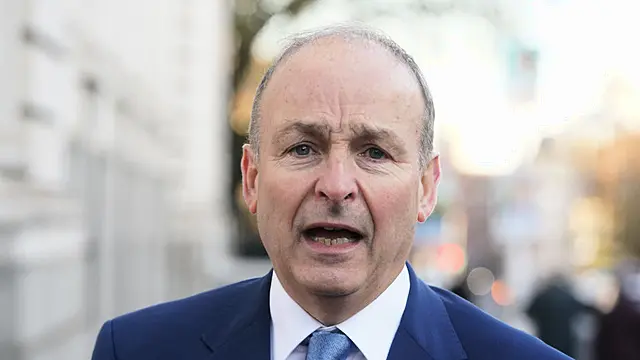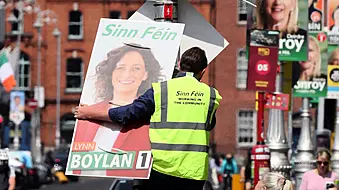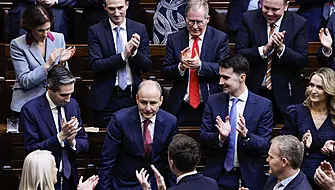A new national therapy service in schools is a “red-line issue” for Fianna Fáil in any future programme for government.
Party leader Micheál Martin said significant investment and reform is needed in disability services.
Fianna Fáil and Sinn Féin both held press conferences on their policy platforms relating to disability on Wednesday.
Sinn Féin said there had been a “decades-long failure” of successive Fine Gael and Fianna Fáil governments to provide for disabled people.
Mr Martin said he wanted to address gaps in children’s disability network teams (CDNT) and roll out a new national therapy service in education, which would see a multidisciplinary response including therapists directly providing therapy in schools.
The Tánaiste said that too many families were waiting too long for assessments of need, which are a HSE process to identify a child’s needs and must be completed within six months.
He said Fianna Fáil would “ramp up” the numbers of therapy clinicians and assistants, as well as occupational and speech and language therapists.
He admitted that these measures, along with an increase in regional assessment hubs, would “take time” – adding that his party would ensure increased procurement of private assessments in the interim.
Mr Martin was speaking alongside Senator Catherine Ardagh, who is the mother of a son with autism.
Ms Ardagh, running in Dublin South Central, said she had first-hand experience of the “daily struggles” faced by families who require support for a child with autism.
She said her son had so much potential but was “held back by the system”, adding that she this week received rejection letters from schools: “It is frustrating, heartbreaking, and absolutely exhausting – a reality that no family should face.
“We need real change. That’s why I am calling for a right nationwide roll out of a one-stop shop for school application.”
Fianna Fáil has held the health and education portfolios for the last four-and-a-half years, along with the Minister of State role for disability.
Asked if she was frustrated by a lack of progress, Ms Ardagh said 1,700 special classes had been introduced since 2020 but added there was a need for further ambition: “We’ve come from the ground, and we need to reach the treetops.”
Mr Martin added that there needed to be obligations around inclusion at every school in the country.
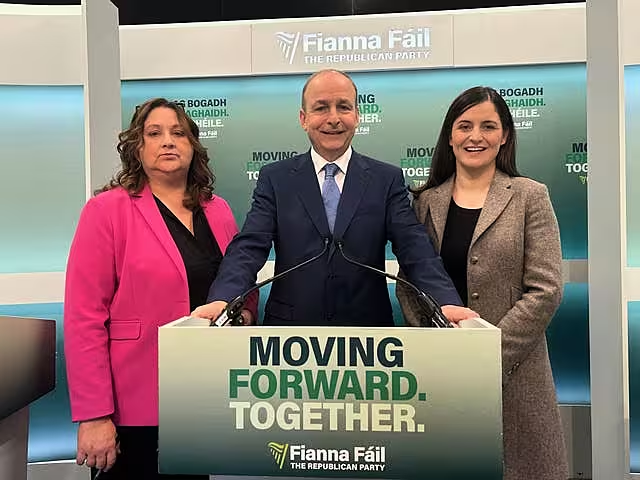
Pressed on what would be different about a future Fianna Fáil term, the Tánaiste said blamed HSE delivery and recruitment of therapists.
“The recruitment and retention plans are not working. There seems to be a morale issue, a human resources issue, an overload issue within the CDNT teams.”
He said there was a “fundamental issue” of the system not delivering on services: “It’s unfinished business as far as I am concerned.”
Mr Martin also said there was “resistance” from Green Party leader and Minister for Children Roderic O’Gorman to Fianna Fáil’s school-based approach, who instead preferred a programme within the HSE.
Fianna Fáil’s plan includes the development of a disabled person’s organisation, the expansion of summer provision, the increase of the disability support grant to €1,000, doubling the housing adaptation grant, adding 20,000 personal assistance hours, and public sector pay parity for section 39 staff.

Elsewhere, Sinn Féin said it would fully staff CDNT teams amid reports of 800 vacancies.
Sinn Féin disability spokeswoman Pauline Tully said her party would increase annual current funding for disability supports by €829 million and provide €659 million of additional capital beyond what has been pre-committed for existing levels of service.
She said Sinn Féin would ensure disabled children have their needs assessed, have school places, and summer provision of support.
Ms Tully said her party in government would make sure young disabled people are supported to pursue their goals in education and employment.
She added that adults with disabilities will be supported to live independent lives.
Elsewhere, the party has committed to providing 3,000 additional residential places for people with disabilities, expanding day service places by 4,000 and adding 345,000 personal assistance hours annually.

At the start of the election campaign, Sinn Féin briefly parked a small truck with a billboard over double yellow lines and a footpath for a press conference on Dublin’s Merrion Street.
Asked if her party had to do more internally to promote inclusion and accessibility, Sinn Féin employment spokeswoman Louise O’Reilly said: “We’ve done a huge amount of thinking about disabled people and, indeed, sometimes we are constrained by logistics – that happens.”
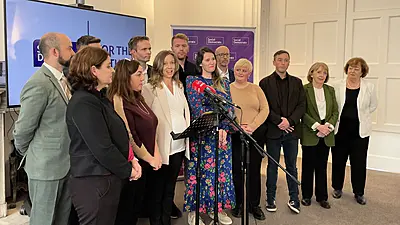
She added: “Sometimes in the teeth of an election campaign, you don’t always get to the venue that you want.”
Ms O’Reilly said the party makes “every effort” on accessibility, adding that Sinn Féin was putting for a “holistic” approach around employment strategies and universal access to public transport in the country.
She said that, for her own part, her constituency offices are fully accessible.
